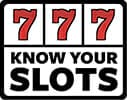In a recent post I talked about understanding the importance of a gaming day to casinos. One aspect of it is knowing when it starts and ends, so you know how your gambling volume is applied. I’ve also shared a bit about understanding calculations around comps.
One aspect I haven’t explored too much is the fact that the number of gaming days triggered counts when it comes to your comp calculations.
Most casino comp programs won’t tell you exactly what triggers a gaming day, but it’s safe to presume the worst, and keep in mind that there’s a lot of activities that can pick you up as being on property, and if not managed property can impact your comps.
Why does this matter? Here’s an example. Let’s say you go to a casino four times a year and place $1,000 worth of bets. Let’s presume it’s on slots, and those $1,000 has you generate a theoretical loss of $100 each visit. If you go four times, That’s $4,000 worth of bets, and $400 of theoretical loss for the year, but it still averages out to the $1,000 of bets and $100 of theoretical loss per gaming day.
Now let’s say you go to the casino a fifth time, and all you do is use your comps to eat at a restaurant. Let’s presume that activity triggers a gaming day (which it does at many casinos). Now you’ve been on property five separate days, so they will see your average as $800 of bets and $80 of theoretical loss per gaming day. This means your offers could be shaved by 20 percent for that one additional visit.
Some casinos will give you one free hall pass; others will be as cheap as they can and ruthlessly cut your comps. You should presume the worst, so it helps to know what activities are likely to impact your comps if not accompanied by your normal gaming play.
That said, comps are always earned based on historical play, so you can certainly claim what’s rightfully yours… just don’t expect it to be there in the future if you burn the bridge.
So, here’s a variety of activities that will likely trigger a gaming day:
- Gambling: The most obvious one, if you use your card and begin to play, whether $1 or $1,000, a gaming day will trigger. This is why some will advise, if you’re not going to play much at all (say just a $20 bill in a casino where you might normally play 10x that or more), you may consider in that one instance skipping using your player’s card to avoid pulling down your average too much.
- Picking Up Gifts: Gifts are generally part of the front-end comp offers casinos use to get you in the door. If you claim that gift and don’t gamble that day, they’ll count it against you and your offers may dry up.
- Stay at the Hotel: If you’re booked under a comp, this will of course matter, but even if you’re spending money, you usually earn points for that stay, which would count as activity.
- Redeeming Comp Dollars: Even though you’ve earned those comp dollars from previous play, you’re still performing an activity on site, and creating an expense for the casino, so they’ll count it as a gaming day. This even includes if you’re using your points on the day of checkout of the hotel, so some players will redeem them the night before on a full day of gaming at properties where check-out day may not count as a gaming day.
- Other Resort Spending: If your card number is used to earn points in the spa or restaurants, to leverage a tier discount at gift shops or essentials stores, and so on, that activity will be logged and generally count as well.
- Swiping a Card at a Kiosk: Even if you’re not actually redeeming anything, some casinos will count a card swipe at a kiosk as activity. So if you want to stay off the radar, you’ll need to truly stay off the radar.
There is one type of activity that doesn’t impact your gaming days, and that’s third party activity. Credit cards, partner point earnings and the like are considered off property earnings and will not impact your gaming day count, as it’s not anything performed at the casino itself. So if you have, for example, the Mlife or Caesars credit cards, where you can earn comp dollars, that activity won’t penalize you.








Hey Joshua!
I want to say thank you for this post, and the overall site for that matter – I thoroughly appreciate the time and effort it must have taken to make your extensive and comprehensive articles on such a great variety of gambling topics.
I am especially grateful for this Gaming Day post as I can only imagine all the times in the past where I’ve triggered minimal Gaming Days and having my comps suffer because of it – that shouldn’t be a problem going forward now that I know otherwise.
I do have one question I was hoping you might know the answer to – how does a Gaming Day work between multiple casinos under a single company? I’m inclined to think that activity under the various casinos would be consolidated into one for any particular Gaming Day, but I figured it might be good to find out for sure.
Under MGM Rewards, there’s Bellagio, Aria, Mirage, Mandalay Bay, Excalibur, Luxor, and so on – would it be interpreted any differently if I were to play with, for example, a $1,000 budget at one casino versus spreading it out evenly to the six mentioned above?
Thanks in advance for your reply!
Alan
Hey Joshua,
No worries about my above question – I found it from your “First Trip to Vegas: Do’s and Don’ts” article! Thanks again.
Alan
Hey Alan – no worries! I’m going to address it in a separate post soon as well as it’s something that I think is worth highlighting! Glad you found the answer already though!